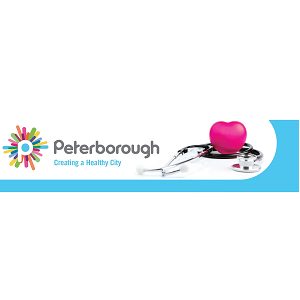Drug & Alcohol Rehab in Peterborough

How Does Rehab Work?
Rehab involves multiple strategies that are created to deal with individual addiction with support, wellness methods, and steps to restore good mental health. Clients are introduced to life-changing, supportive, and therapeutic programmes that are led by addiction therapists. Along with individual therapeutic intervention, individuals can benefit from the support received from group sessions. Addictions are treated with a residential or an outpatient programme. If you enter an inpatient rehab programme, the programme requires that you stay inside the centre or the facility for the duration of treatment. Outpatient services are an option for those with less severe dependencies and will meet with a counsellor weekly while attending work commitments and staying at home.
What Happens During Residential Rehab?
When you are ready to enter rehab for drug and/or alcohol dependence, it is a courageous step towards recovery. Although achieving balance and breaking the cycle of dependence takes some time, it can be achieved. To assist you to make an informed decision concerning treatment, we look at the options available and what happens during rehab.
During rehabilitation you can expect to get an individualised assessment done by a professional. The purpose is to determine the best treatment plan based on your history with addiction and current condition. Here, medical staff will look for comorbid disorders such as mental health conditions that exist with addiction.
Assessments are followed by detox. Individuals who enter detox will begin withdrawing from substances including alcohol, as the body returns to a normal state of function. This timeline will differ depending on the type of drug used and the length of dependency. Only when the system no longer contains traces of the drug will individuals participate in a treatment plan.
Rehab includes meeting with a therapist for private & group sessions, participation in skill building activities as with an inpatient or residential rehab, or group meetings that are common with outpatient 12 Step programmes. We explore the various phases of rehab in more detail.
1. Assessment

To receive the best treatment to suit your needs, an assessment will be the first stage in the recovery process. Assessments are carried out by a medical professional and will include a telephone screening. The professional asks questions regarding your state of health, your substance use, any history of addiction, and whether you might have any comorbid mental health issues. A telephone assessment provides staff with private information that will help to safely handle the detox process.
Whether you or someone you care about require professional support to overcome substance addiction, it all starts with an individual assessment. Assessments are important to the success of therapy because it determines the type of therapeutic approach based on the addiction and potential comorbidities (depression or anxiety).
2. Detox

If you are dependent on drugs and/or alcohol or you have a substance in your body, you must undergo detoxification before you can proceed with a therapeutic programme. Detox is performed in an inpatient facility or a medical facility. During detoxification, the drug is gradually cleared from the body which often results in withdrawal symptoms.
It is recommended to have a supported medical detox because experienced staff are readily available to help you through the withdrawal process. As the substance is no longer consumed, you may start to experience withdrawal symptoms. Without professional aid, there is a higher risk of relapsing. Detox is followed by a fully tailored therapeutic programme. You can attend inpatient or outpatient therapy that is managed by trained addiction therapists and a support team.
3. Therapy

Therapy begins when the body is rid of drugs and/or alcohol. The choice of being assigned to an inpatient or an outpatient service will depend on the individual assessment, budget, and life commitments. Therapy provided in treatment ranges from individual counselling with a therapist, the attendance of group therapy, and emphasis on building positive coping mechanisms as well as skills.
Step by Step Process for Residential Rehab
To understand your medical and mental health history.
Arrange a suitable date to begin your journey to recovery.
Begin the managed withdrawal process from substances including alcohol.
To understand the root cause of addiction and how to overcome it.
Aftercare is provided to help manage the risk of relapse.
To help heal the wounds that addictive behaviour has caused others.
Find your Nearest Rehab Centre near Peterborough
The nearest rehab centre is Addiction Rehab UK Drug & Alcohol Rehabs.
Address: Addiction Rehab UK Drug & Alcohol Rehabs, Blenheim Court, 4, Peppercorn Cl, Peterborough PE1 2DU, United Kingdom
Call 0333 4444 432 to discuss your alcohol or drug rehab requirements and any other questions you may have about the process of residential rehab.
Outpatient Addiction Services in Peterborough
Inpatient or outpatient programmes for dependence can be determined by your budget requirement and life circumstances. Nevertheless, it is an individual process that requires commitment and awareness to succeed. To help you understand these different options, we look at outpatient addiction treatment services compared with residential treatment.
In an outpatient programme, you will not have to stay at the facility to receive treatment. It is a more flexible arrangement for those who need care and therapy but cannot fully commit to a 24-hour residential programme. The purpose of outpatient programmes is to help you benefit from counselling while attending to family, work, and personal commitments.
When you have decided that outpatient treatment is an approach you wish to pursue, the next step is to find a complimentary programme offered by a CQC registered organisation or charity.
The Benefits of Outpatient Services
Private outpatient programmes are tailored to the individual’s needs. The purpose is to provide optimal standards of care and intervention for recovery from addiction. – Outpatient care is considered flexible because individuals with family/work commitments can continue to manage these areas of life while attending weekly or twice-weekly counselling sessions. – It is also more affordable in comparison to inpatient rehab services.
The Challenges of Outpatient Services
Outpatient services will always have an important place in rehab but for drug or alcohol addiction, remaining at home with access to substances and the usual social circles may risk relapse. Furthermore, free outpatient services provided by the NHS or UK based charities do not provide the same tailored programme that private outpatient services provide, and there is typically a waiting list before you can be accepted for treatment.

How Much Does Rehab Services Cost in Peterborough?
Residential rehab can cost £1500 – £4000 per week. To determine how much other addiction treatment services cost requires a closer look at the services included. Residential rehab is the most costly of the two; however, there are alternative options and service providers including charities offering free drug and alcohol rehab services for qualifying individuals.
The NHS and charities such as Turning Point will require a self-referral to be considered for addiction treatment. You can also find many other affordable services (such as private counselling) or free therapies and community supported services for those with drug and alcohol addiction. These groups include AA or Alcoholics Anonymous, Narcotics Anonymous, and Cocaine Anonymous.
Support Groups in Peterborough

Peterborough Open Share
East Community Centre, Padholme Rd PE1 5EN

Peterborough Share
East Community Centre, Padholme Rd PE1 5EN

Peterborough As Bill Sees It
East Community Centre, Padholme Rd PE1 5EN
The Pros and Cons of Seeking Treatment in Your Local Area
Pros
1. You are familiar with the area which may provide a layer of comfort/safety.
2. Family or friends can easily travel to visit or are close by.
3. You may save on the costs of travelling long distances for treatment, or free services may only be offered in your area of residency.
Cons
1. A local environment means access to drug dealers or other triggers. This is more of an issue if you opt for outpatient programmes.
2. Not considering locations outside your local area could result in missed opportunity for more valuable and rewarding programmes.
3. Addiction treatment programmes that are close by don’t always offer the best standard of treatment.
In the event you are unsure about a particular addiction treatment service, you can look to the CQC website for more information including a rating of that service.


